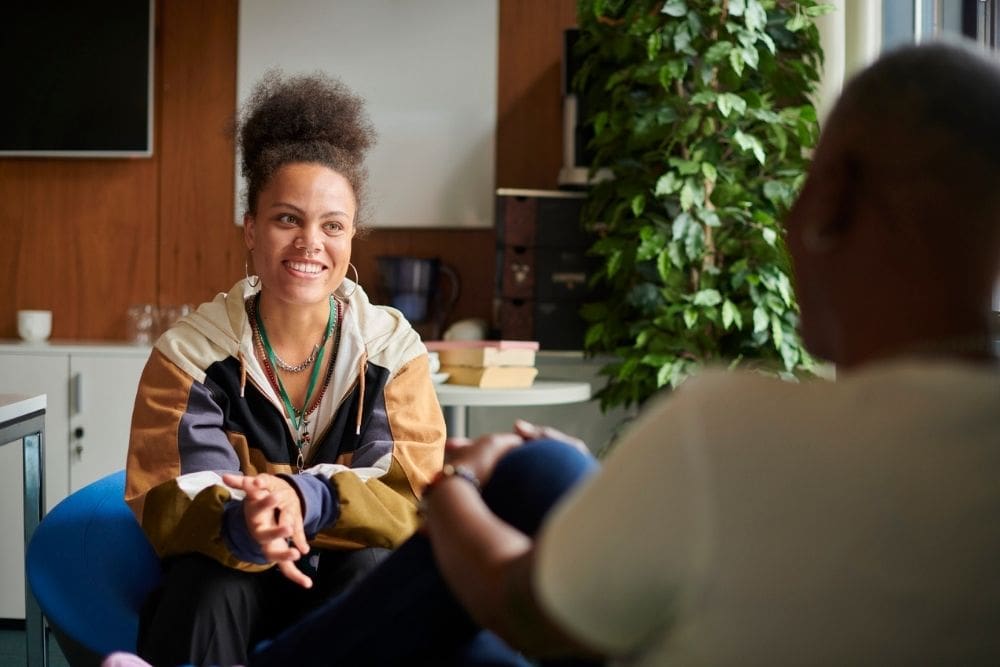It’s always a little awkward to have to tell someone older than yourself a hard truth. Maybe a young employee has to train an older newcomer. Maybe a teacher has adult students older than herself. Or maybe a teenage or adult child needs to have a difficult conversation with their parents about childhood trauma, finances, or problematic behavior — or substance use.
In an addiction recovery context, problematic behaviors can fall into diverse categories. Believe it or not, nearly 1 million Americans over 65 abuse substances, and it can feel like rocket science trying to figure out how to approach an elderly loved one when they’re showing signs of addiction to drugs or alcohol.
Thankfully, a wealth of resources is available to help people navigate this conversation. Tough conversations are cognitive psychologist LeeAnn Renniger’s speciality. Dr. Renniger studies feedback and how we give feedback to each other. She’s proven that the best types of feedback are given in a very specific way. We summarize her advice below.
- Step 1: Ask a micro-yes question
In other words, open with a question that is easy for the person to say “yes” to. Funnily enough, the brain needs a question to alert it to the fact that an important conversation is about to take place.
For example, you might ask, “Hey dad/grandpa, would you have a few minutes to talk about the family dinner the other night?” This simple question can begin the conversation about a specific, negative instance of their substance abuse.
Taking this step helps the other person feel more autonomous, because they have the option to engage with you or not. If the answer is no, try again later with a different micro-yes question.
- Step 2: Bring up the facts, not the feelings
Although you may have many strong feelings about your elderly loved one’s substance use, now is not the time to let feelings lead. Let the facts come first. Verbalize specific, objective points. For example:
-
- Grandma/Mom, you are losing weight because you consume too much alcohol.
- Dad, your spending on alcohol has gone over $500 dollars this month.
- Grandpa, your doctor let me know that your medical state is very poor right now due to your drinking.
- Step 3: Describe how you are affected by the behavior
Offer a few statements that explain how your loved one’s substance use is affecting and/or the family. Again, your feelings may be strong, so try to be clear and calm during this part of the conversation. Think cause and effect:
-
- Dad, your binge drinking scares and saddens your grandchildren, and they don’t want to come to your house to see you.
- Mom, your opioid spending is causing my family to put out money and time that we can’t sustain. It’s causing us to struggle.
- Step 4: End with the question
It’s best to present the idea of going to treatment at the end of the conversation, framing it as a question and not a command:
-
- I feel like going to treatment is the best course of action to getting our family back on track, don’t you?
Be sure to have done your research ahead of time to be able to suggest a treatment facility. You might want to call the facility ahead of time to ask about availability and whether they have any age or health restrictions. If your loved one agrees to seek help, offer to visit the facility with them and talk together with an admissions counselor.
The Takeaway
It’s never too late to change your life for the better. St. Gregory Recovery Center is here to advise and support you and your family as you determine the best course of action for yourself or a loved one. Don’t hesitate to call us today for more information and counsel about the best practices for a treatment conversation.




